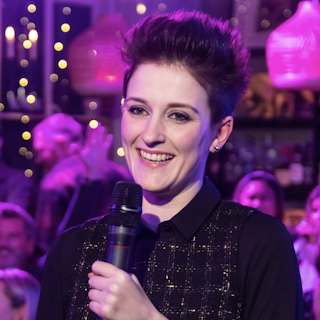'Macho' newsroom culture is changing but not fast enough says HuffPost editor-in-chief
The Drum caught up with three media industry experts and judges of The Drum Online Media Awards on their experiences and views on gender inequality in the industry.
2018 marks 100 years of women's suffrage. Also, this year 90 have passed since equal voting rights were established in the UK with the passing of the Equal Franchise Act of 1928, giving women (over 21) basic rights. Over the past nine decades, women's rights have progressed tremendously however, many industries still see inequalities, including pay gaps between women and their male counterparts. Following the recent resignation of the BBC's China editor, Carrie Gracie, citing pay inequality with male international editors earning more than her, this is what our industry has to say.
Polly Curtis, editor-in-chief, HuffPost
I have experienced extremely male-dominated cultures in journalism that I found very difficult at times. I also had long stretches of my career when it just wasn't an issue. At its worst I’ve seen how off-putting that macho culture can be for younger women coming into newsrooms.
That is changing but not fast enough. You can look across news organisations and see close to gender parity in terms of numbers but who is getting the front page bylines? Who is making the calls on what the most important news stories of the day are? Who is doing the hiring? Having gender parity at all levels of seniority is important.
Part of the problem is the loss of women from the most senior positions once they have kids so that leadership teams and news editors are disproportionately male. Anything that helps women continue to progress after they have children will help ensure newsrooms reflect the world they are reporting on.
In the HuffPost newsroom we are majority female which is incredibly important for our journalism. Our readership is 58% women and we need to reflect our audience in order to connect with them and understand what they care about. Having women in the most senior positions in newsrooms is the first way to start fixing the problem.
Anne-Marie Tomchak, UK editor, Mashable
Part of the reason why the media industry still hasn't achieved anything that resembles gender equality lies in taking it outside of our industry and into society as a whole. So long as gender inequality still exists in the world around us (and it does), it will exist to varying degrees in different industries, including journalism. Yes, things are much better now than they were for my mother’s generation.
For example, women in the civil service in Ireland had to give up their jobs after getting married right up until the 1970’s. That would be unheard of now, and we’ve made huge strides in women’s rights. But there are still major, systemic issues to address in how society values women – whether that’s how the law ensures pay parity, how we raise our children, how we portray (and objectify) female youth, how we support parents in the workplace, and how we devalue women after a certain age.
There is still an under representation of women in senior roles and a diversity gap in many newsrooms. But things are improving. When I look around me, I see so many more female role models in leadership positions compared to when I was starting out. Mashable is a great example of that – with female editors in London and Australia and a female EIC in New York.
But it’s important to add that just because things look better on the surface, does not necessarily mean there is equality. It runs much deeper than optics and visibility. Giving equal opportunities to women is just one step. They should also be paid fairly. Just look at the recent case of Carrie Gracie in the BBC. She left her position as China Editor in order to make a point about pay discrimination because she was being paid much less than her male counterparts.
Jacqui Kavanagh, vice president of partnerships, Refinery29
We're witnessing a watershed moment for women across many creative industries, where long overdue conversations about gender equality are finally happening. It is time that those in positions of power sat up and listened.
These problems have been allowed to fester: we now need to collectively interrogate, and where necessary dismantle, the status quo so collectively men and women can move our industry forward together.
Refinery29 has spent over 12 years championing the work of women, both in our organisation and the wider world. During my time here, I have seen how transformative frank dialogue can be when it comes to telling women's stories: from Refinery29 commissioning films by female directors and writers as part of our Shatterbox Anthology series, to editorial takeovers that delve into the untold sides of topics including motherhood and menstruation, we want to level the playing field when it comes to equality by shining a light on the imperfect but indispensable female experience.
Curtis, Tomchak and Kavanagh were all judges for The Drum Online Media Awards 2018, which identify the cleverest, boldest and most original purveyors of news and views from around the world.
The deadline for the 2019 awards is Friday 27 February, make sure you download the entry pack and showcase your outstanding work on a global scale.

